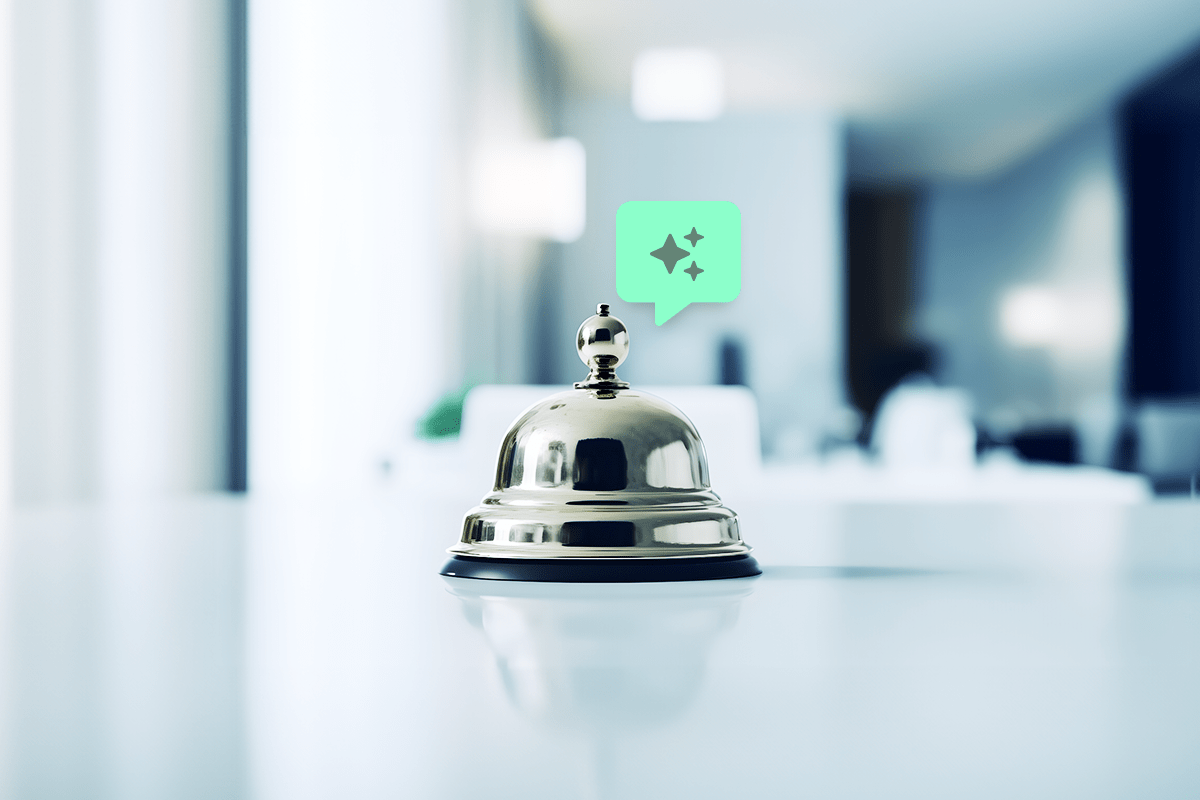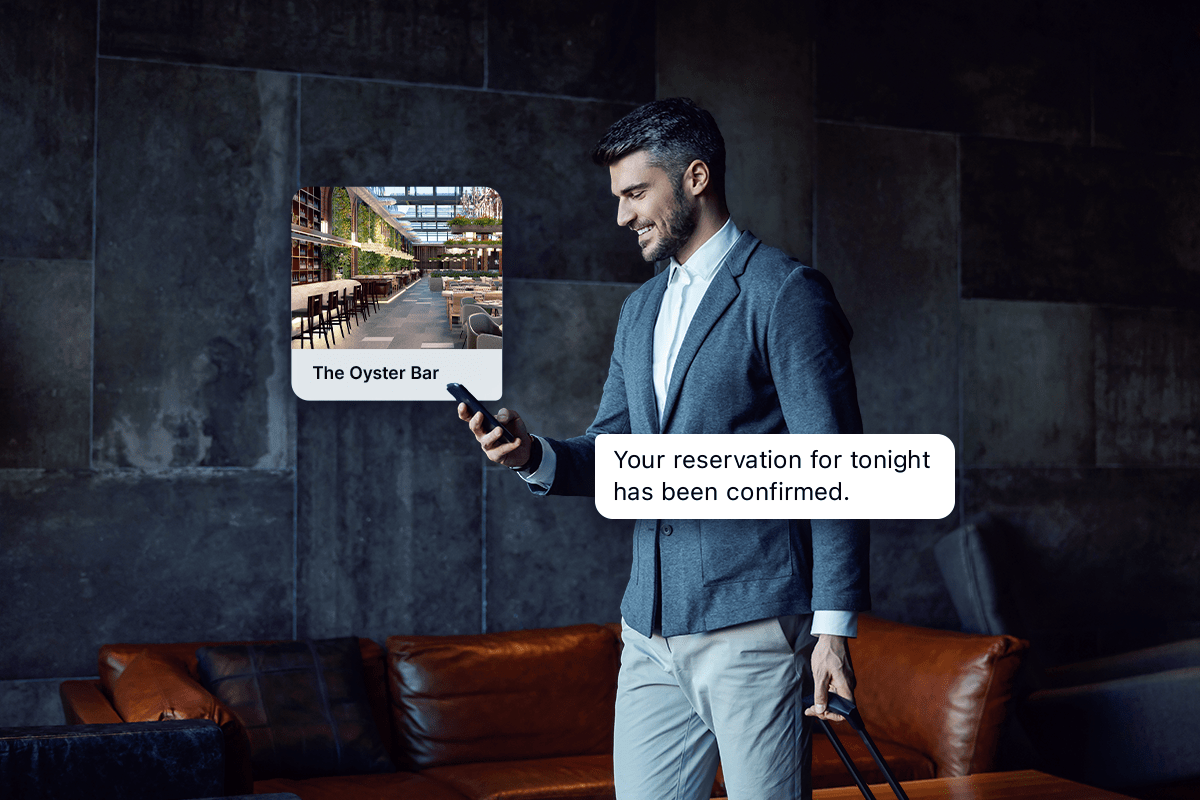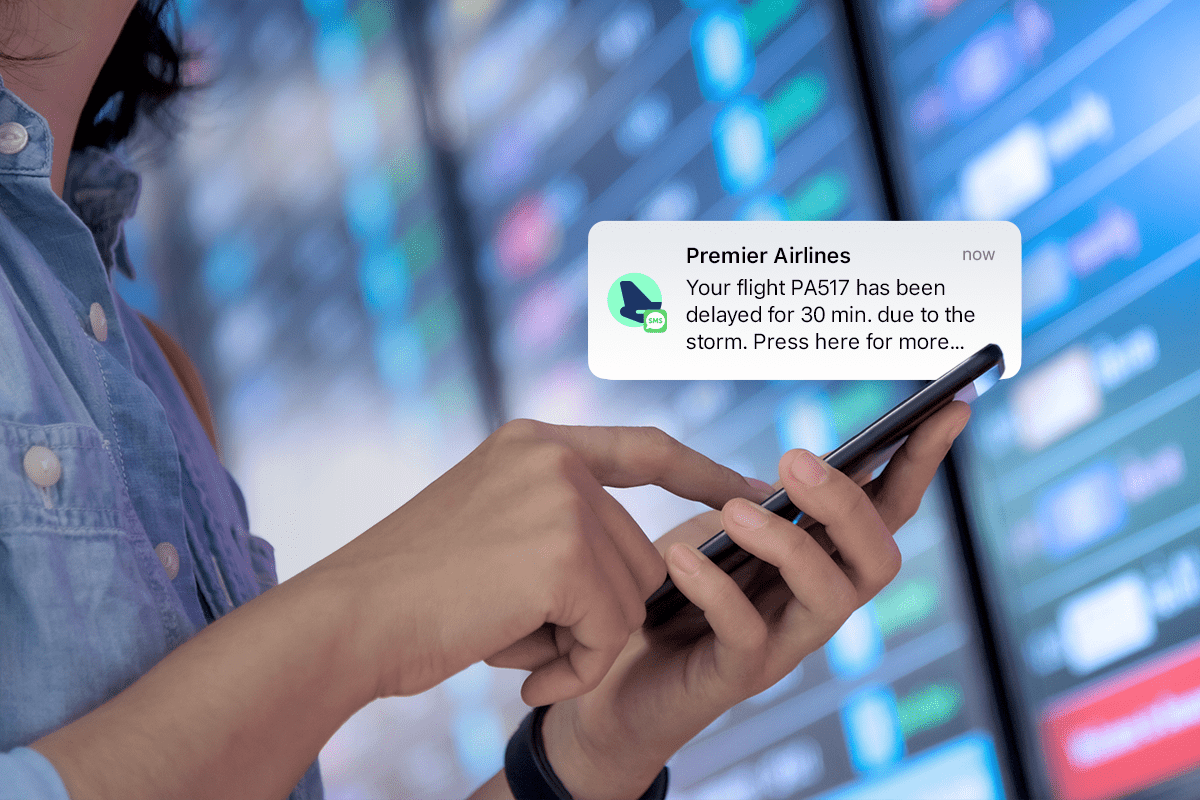Artificial intelligence (AI) has been all the rage for the past year, owing to its remarkable abilities to generate convincing text (and video!), automate major parts of different jobs, and boost the productivity of everyone using it.
Naturally, this has sparked the interest of professionals in the hospitality sector, which will be our focus today. We’ll talk about how AI assistants can be used in hotels, the size of the relevant market, and some potential issues you should look out for.
It’s an exciting topic, so let’s dive right in!
What is an AI Assistant for a Hotel?
Leaving aside a bit of nuance, the phrase “AI assistant” broadly covers using algorithmic technologies such as large language models to “assist” in various aspects of your work. A very basic example is the bundle of spell checkers, suggested edits, and autocomplete that is all but ubiquitous in text editors, email clients, and blogging platforms; a more involved example would be carefully crafting a prompt to generate convincing copy to sell a product or service.
If you’re interested in digging in further, check out some of our earlier posts for more details.
What is the Importance of Artificial Intelligence in the Hotel Industry?
In the next section, we cover the nuts and bolts of what AI assistants can do to streamline your operations, reduce the burden on your (human) staff, and improve the experience of guests staying at your hotel.
But in this one, we’re just going to talk dollars and cents. And to be clear, there are a lot of dollars and cents on the table. Experts who’ve studied the potential market for AI assistants in hospitality believe that it was worth something like $90 million in 2022, and this figure is expected to climb to an eye-watering $8 billion over the next decade.
“Hang on,” you’re thinking to yourself. “That’s great for the investors who fund these companies and the early employees that work in them, but the fact that a market is worth a lot of money doesn’t mean it’s actually going to have much impact on day-to-day hospitality.”
We admire your skeptical mind, and this is indeed a worthwhile concern. AI, after all, is renowned for its ups and downs; there’ll be years of frenzied excitement and near-delirious predictions that entire segments of the economy are poised for complete automation, followed by “AI winters” so deep even Ned Stark can’t get warm behind the walls of Winterfell.
Making the case that AI in hospitality will, in fact, be a trend worth thinking about is our next task.
The 4 Reasons Every Hotel Should be Using an AI Assistant
As promised, we’ll now cover all the reasons why you should seriously investigate the potential of AI assistants in your hotel. To paraphrase a famous saying, “Fortune favors the innovative,” and you can’t afford to ignore such a transformative technology.
#1 AI Assistants Can Help Drive Bookings and Sales
There are many ways in which AI will change the hotel booking process because it can act as a dynamic tool for enhancing guest interactions and driving sales directly through your hotel’s website. To start, AI assistants can significantly reduce the likelihood of potential guests abandoning their bookings midway by providing real-time answers to their questions, alleviating doubts about the details of a stay, and offering instant booking confirmations. Not only do such seamless experiences simplify the booking experience, they also contribute to an increase in direct bookings – a crucial advantage for hotels, as it eliminates the need for commission payouts and boosts profitability.
But that’s not all. These assistants are increasingly being integrated into social media and instant messaging platforms, enabling guests to start the booking process through their preferred channel or, failing that, redirecting them to the main hotel booking system. Throughout, they can proactively gather information about the guests’ preferences and budget, making tailored recommendations that increase the likelihood of conversion.
As you’re no doubt aware, a hotel doesn’t just make its money from bookings – there are also many opportunities for upselling and cross-selling hotel services. This, too, is a place where AI assistants can help. While interacting with a potential customer, they can suggest additional breakfast options, spa appointments, room upgrades, etc., based on the customer’s current selection and previous interactions with you.
Moreover, an AI assistant can modernize hotel marketing strategies, which have traditionally relied on relatively static methods like email campaigns. Properly tuned language models are capable of engaging in personalized, two-way conversations via social media or on your website, allowing them to deliver more effective promotional messages and alerts about special events or loyalty programs. All of this makes your messaging more likely to resonate with guests, ultimately boosting the all-important bottom line.
#2 AI Assistants Can Help Reduce Burnout and Turnover
About a year ago, we covered a landmark study from economists Erik Brynjolfsson, Danielle Li, and Lindsey R. Raymond that examined how generative AI was changing contact centers. Though there were (and are) many concerns about automation taking jobs, the study concluded that this new technology was helping newer agents onboard more quickly, was making mid-tier agents perform better, and was overall reducing burnout and turnover by lessening each agent’s burden.
Most of these factors also apply to your hospitality staff. Let’s see how.
Algorithms offer the distinct advantage of providing continuous service, and operating around the clock without needing breaks or sleep. This ensures that guests receive immediate assistance whenever needed, which will go a long way to cementing their perception of your commitment to exceptional service.
Furthermore, these assistants contribute to the efficiency of face-to-face customer interactions, particularly during routine processes like check-ins and check-outs. This dynamic becomes even more powerful when you integrate conversational AI into mobile apps, guests can complete these procedures directly from their smartphones, bypassing the front desk and avoiding any wait.
Hospitality teams often face high workloads, managing in-person guest interactions, responding to digital communications across multiple platforms, and analyzing feedback from customer surveys. A good AI assistant can substantially reduce this burden by handling routine inquiries and requests. Your human staff can then be left to focus on more complex issues, thereby preventing burnout and improving their capacity to deliver quality service via the fabled “human touch.”
#3 AI Assistants Can Help Improve the Guest Experience
Let’s drill a little bit more into how AI assistants can improve your guest’s stay at your hotel.
We’ve already mentioned some of this. If a customer’s booking goes smoothly, changes are handled promptly, their 2-a.m. questions have been answered, and their stay is replete with little personalized touches, they’re probably going to reflect on it fondly.
But this is hardly everything that can be said about how AI assistants will improve the hotel experience. Consider the fact that today’s language models are almost unbelievably good at translating between languages – especially when those are “high resource” languages, such as Mandarin, Russian, and Spanish.
If you’re a monolingual native English speaker, it can be easy to forget how much cognitive effort is involved in speaking a language in which you’re not fluent. But imagine for a moment that you’re a foreign traveler whose flight was delayed and whose kids never once stopped crying. Wouldn’t you appreciate being greeted with a friendly “欢迎” or “Добро пожаловать”, rather than needing to immediately fumble around in English?
Another subject that is slightly off-topic but is nevertheless worth discussing in this context is trust. People have long known that the internet is hardly a shining example of forthrightness and rectitude, but with the rise of generative AI, it has become even harder to believe what you read online.
We’ve discussed how much AI assistants can do for your hotel, but it’s important to use them judiciously, with appropriate guardrails in place, to reap the most benefit. If one of your language models offers up bad information or harasses a guest, that will reflect negatively on you. This is too big a topic for us to cover in this article, but you can check out earlier posts for more information.
A related issue is the collection of data. Upselling customers or personalizing their room can only be done by gathering data about their preferences. This, too, is something people are gradually becoming more aware of (and worried about), so it’s worth proactively crafting a data collection policy that’s available if anyone asks for it.
#4 AI Assistants Can Help Keep Your Operations Running Smoothly
Finally, we’ll finish by considering how AI can be used to streamline your hotel’s basic operations – making sure everything is in stock, that items make it to the right room, etc.
One significant benefit (which is becoming a more important distinguishing feature) is improving energy efficiency. You’re probably already familiar with smart room technologies, such as thermostats that reduce energy consumption by automatically adjusting themselves based on occupancy. But consider how implementing AI to manage HVAC systems for an entire building could not only optimize energy use and save significant costs, but also make guests more comfortable throughout their stay.
Similarly, AI can revolutionize waste management by employing systems that detect when trash receptacles need servicing. This would reduce the time staff spend checking and clearing bins, allowing them to focus on more valuable tasks.
Beyond these sustainability-focused applications, AI’s role in automating routine hospitality operations is vast. A fun example comes from Silicon Valley, where the Crowne Plaza hotel employs a robotic system named “Dash” to deliver snacks and towels directly to guests.
Even if you’re not particularly interested in having robots wandering your halls, it should hopefully be clear that many parts of running a hotel can be outsourced to machines, freeing you and your staff up to focus on more pressing matters.
Riding the AI Wave with Quiq
After decades of false starts and false promises, it looks like AI is finally having a measurable impact on the hospitality sector.
If you want to leverage this remarkable technology to the fullest but aren’t sure where to start, set up a time to talk with us. Quiq is an industry-leading conversational AI platform that makes deploying and monitoring AI systems for hotels much easier. Let’s explore opportunities to work together!



